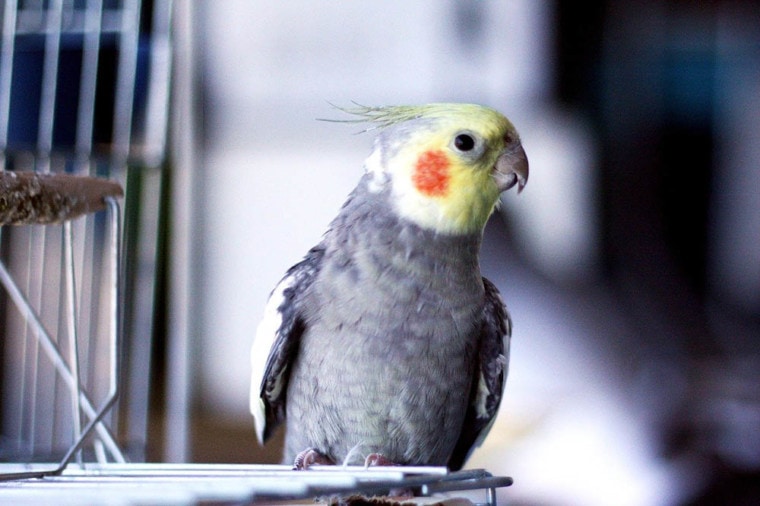
There are many things to consider before adopting a new bird. If you’ve never owned a bird before, you probably don’t know what to expect, and narrowing down your list of potential bird species could be a bit of a challenge. One thing potential bird owners often wonder is just how vocal they should expect their new pet to be. Cockatiels are usually vocal birds and they make different sounds to communicate but they are considered quieter than other birds.
Cockatiels are one of the best pet bird options as they’re gentle and affectionate. They love being touched and are happy to spend time with their owners. But are cockatiels a loud bird species? Will adopting one cause your pesky neighbor to file a noise complaint against you?
Keep reading to learn everything you need to know about cockatiels and their vocalizations.
 Are Cockatiels Loud?
Are Cockatiels Loud?
Cockatiels are naturally vocal birds. They make several different sounds, from screeching and squawking to whistling and singing.
So, while they’re certainly vocal birds, are they considered loud? Well, it depends on what you consider to be loud. What you believe to be sweet, quiet chirping sounds may sound like nails on a chalkboard to your neighbor in your apartment building.
Cockatiels are noisier than, say, a cat, but when we compare them to other birds, like conures, they’re definitely on the quieter side.
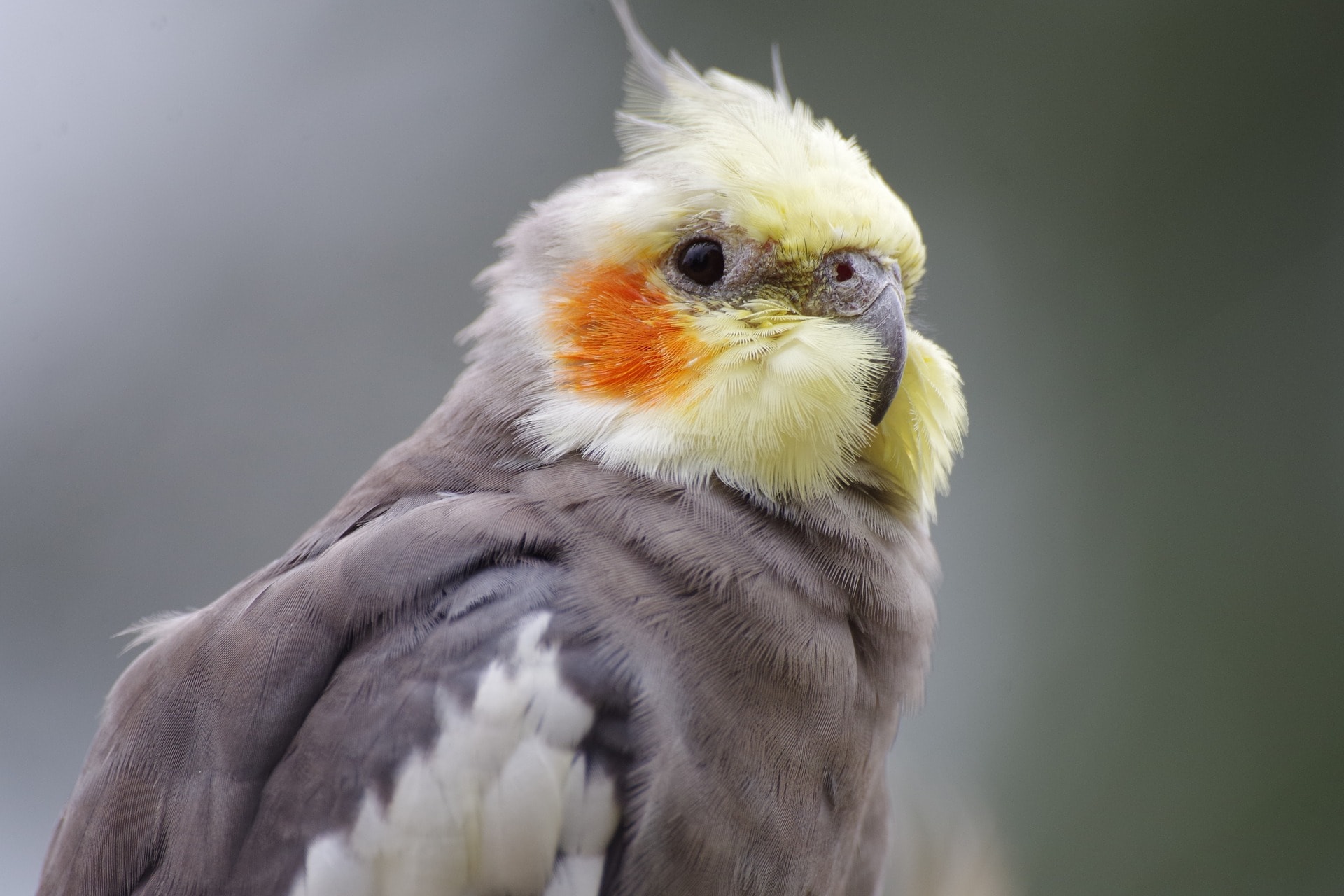
Are There Differences Between Genders?
Male cockatiels use songs to attract a mate and to create and maintain social bonds. Females tend to be a bit quieter, sticking mostly to flock calls.
Female cockatiels will often call out to their owner to let them know they miss you. They make several typical cockatiel noises and might even call out to the other birds in your neighborhood with characteristic cockatiel calls.
Males are more apt to mimic the words you say and the way you talk. They whistle louder and aren’t afraid to make a bit of a ruckus. During mating season, you’ll notice your male cockatiel making much more sounds than usual. He might tap his beak aggressively against anything and everything he comes into contact with, especially if there is a potential mate around.
Females, too, are more vocal during mating season. They’ll coo, a sound you might be surprised to hear coming from your bird.
While both genders are vocal, most male cockatiels will be noisier.
If you’re new to the wonderful world of cockatiels, you’ll need a great resource to help your birds thrive. We highly recommend taking a closer look at The Ultimate Guide to Cockatiels, available on Amazon.
This excellent book covers everything from the history, color mutations, and anatomy of cockatiels to expert housing, feeding, breeding, and health care tips.
How Can I Keep My Cockatiel Quiet?
If you live near your neighbors and are afraid that your cockatiel’s noises will annoy them, there are some things you can do to quiet your bird down.
1. Ignore the Noise
While this may not sound like a great way to quiet your cockatiel, you’re really playing the long game when you commit to ignoring their squawks.
Your bird may be screeching and squawking in the first place to get your attention. If you run over to it and offer it treats or affection every time it makes a peep, you’re teaching it that its loud vocalizations equal rewards. While a snack or snuggle may silence your loud bird at the moment, it will only make for a noisier bird in the future.
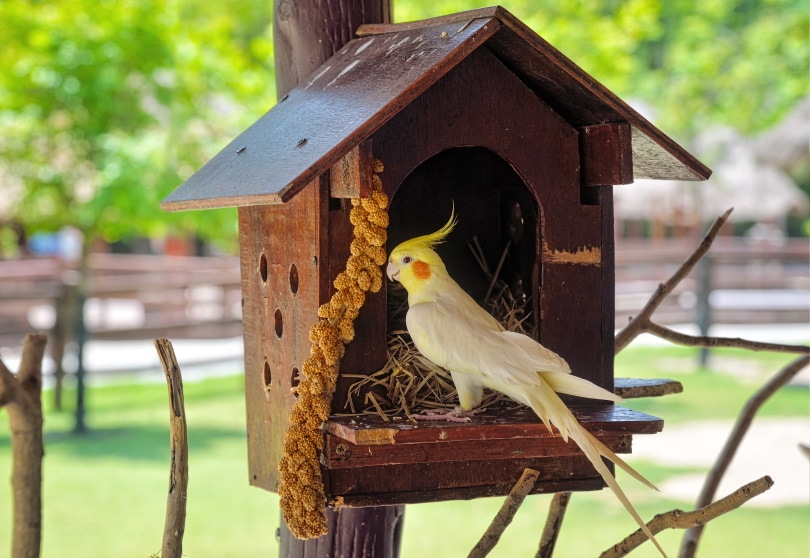
2. Use Positive Reinforcement
When you see your cockatiel acting in a quiet and mellow way, reward it with a treat or extra affection. If it’s sitting calmly on its favorite perch while you’re approaching its cage, treat it with something it likes.
Remember, you do not want to react at all when unwanted noises take place. Only offer the treats when your cockatiel is displaying the behavior you like.
3. Quiet Yourself Down
When it comes to keeping your cockatiel quiet, practice what you preach. Your bird may be vocalizing so loud in an attempt to keep up with the noises occurring in your home. If you’re always playing loud music or watching TV with the volume cranked, you may inadvertently be telling your bird that loud noises are okay.
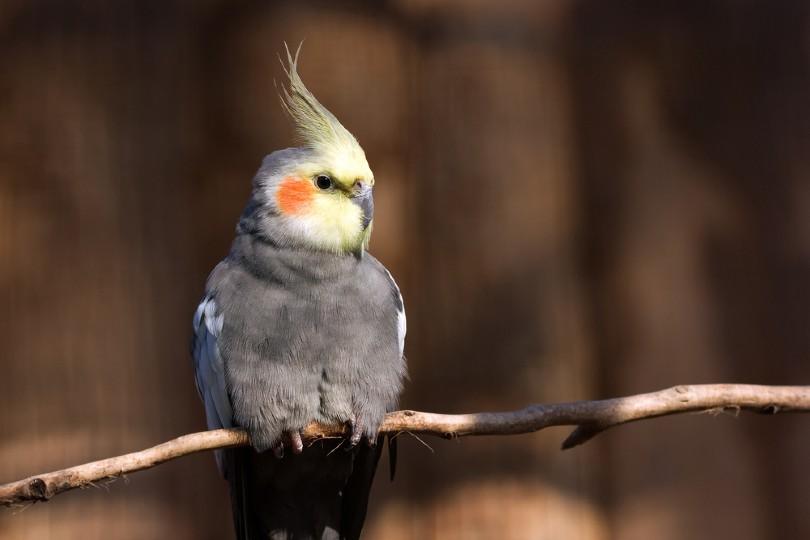
4. Provide Enrichment
Your cockatiel may be noisy simply out of boredom. Be sure that its cage is full of engaging and enriching toys of different colors and textures. You should have a few sets of toys so you can change them out every week to keep them occupied and interested.
Make sure to take time every day to play with your bird and spend some quality time together. Even moving its cage into your living room now and allowing them to be closer to you more often can reduce some of their boredom.
5. Be Sensitive
If your cockatiel is making a ruckus when you put it to bed, you may be dealing with a case of night frights. This is a common phenomenon in birds as they are prey animals so any movement or sound that happens while they’re asleep can cause them absolute panic.
You never want to punish your cockatiel for having night frights. Instead, look at their environment to determine what you can do to reduce the likelihood that they’ll become frightened at night. Keep a night light close by and ensure the room it’s sleeping in isn’t drafty or in a place where other pets or people will be.
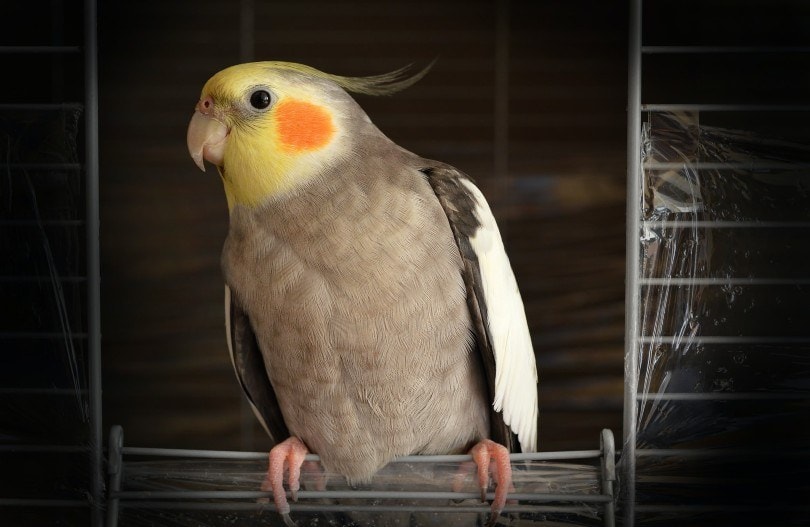
 Conclusion
Conclusion
While cockatiels can certainly be vocal, they’re not as loud as other pet birds. If you happen to adopt a particularly vocal cockatiel, there are steps you can take to quiet them to not only keep yourself sane but to keep the peace with your neighbors, too.
Featured Image Credit: giovannistrapazzon, Pixabay
 Are Cockatiels Loud?
Are Cockatiels Loud?






